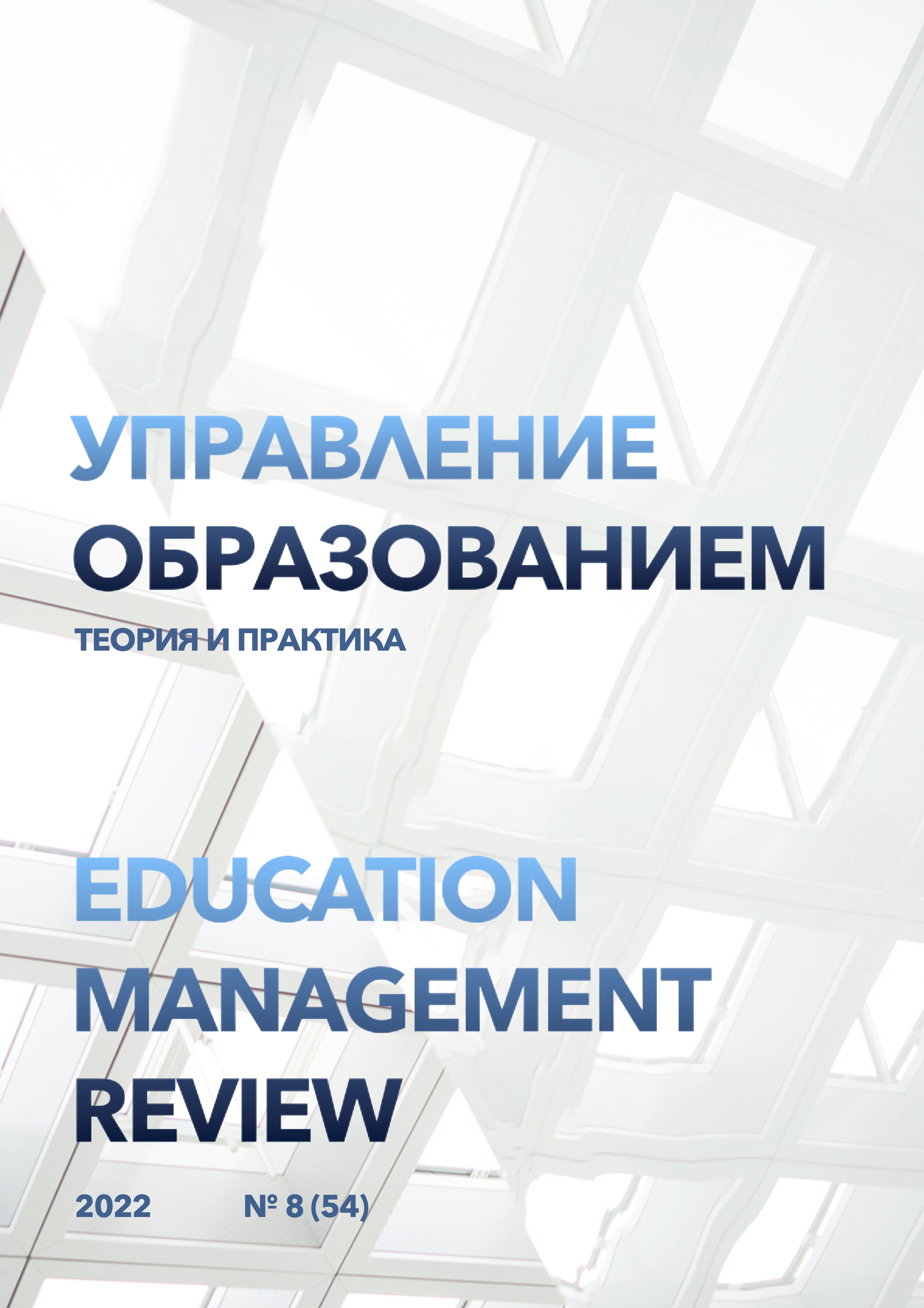Modern trends in the mediatization of culture in the digital educational space
DOI:
https://doi.org/10.25726/g9171-7300-9225-fKeywords:
media space, culture, society, digitalizationAbstract
The formation of a new dominant technological order is due to the dynamics of the development of the digital media space – an important component of the global media space, the formation of which is a natural stage in the development of the era of electronic communications. The media space is a complex self-organizing system and is a part, a subsystem of the information and communication universe as a set of all systems somehow related to communication processes. The novelty of the research is determined by the postulate that the media space is a component of the global space of people's social existence, generates and organizes the production and consumption of information in various forms of social communication; this is a special reality. The authors show that its formation is facilitated by the growing diversity of communication technologies that accompanied the historical and cultural development of society. The article shows that the media space is characterized by several components that determine public life: a technosphere built on ICT; an infosphere based on information and network highways; a socioinfosphere that includes information flows and organized structures that control the processes of their creation and consumption and affect the state of social intelligence. The practical significance of the research is determined by the fact that the media space is not only a repeater of information, but also its producer, in connection with which it acts as a complex, global system that contains all socio-cultural components capable of forming information prerequisites and requests and providing information needs with all possible communication means.
References
Al-Zahrani, S., & Fakieh, B. (2020). How devops practices support digital transformation. International Journal of Advanced Trends in Computer Science and Engineering, 9(3), 2780–2788. https://doi.org/10.30534/ijatcse/2020/46932020
Astakhova, L. V. (2020). Issues of the Culture of Information Security under the Conditions of the Digital Economy. Scientific and Technical Information Processing, 47(1), 56–64. https://doi.org/10.3103/S0147688220010062
Beskow, D. M., Kumar, S., & Carley, K. M. (2020). The evolution of political memes: Detecting and characterizing internet memes with multi-modal deep learning. Information Processing and Management, 57(2). https://doi.org/10.1016/j.ipm.2019.102170
Cimini, A. (2020). We don’t know that we don’t know what a body can do …, or Spinoza and some social lives of sonic material. Intellectual History Review, 30(3), 465–488. https://doi.org/10.1080/17496977.2020.1732707
Das, R., & Hodkinson, P. (2020). Affective coding: Strategies of online steganography in fathers’ mental health disclosure. New Media and Society, 22(5), 752–769. https://doi.org/10.1177/1461444819869611
Datta, P., Walker, L., & Amarilli, F. (2020). Digital transformation: Learning from Italy’s public administration*. Journal of Information Technology Teaching Cases. https://doi.org/10.1177/2043886920910437
Davydova, O., Kashchena, N., Staverska, T., & Chmil, H. (2020). Sustainable development of enterprises with digitalization of the economic management. International Journal of Advanced Science and Technology, 29(8 Special Issue), 2370–2378.
Dunn, H. S. (2020). Creative resilience and globalization from within: evolving constructs for analysing culture, innovation, and enterprise in the global south. Annals of the International Communication Association, 44(1), 4–18. https://doi.org/10.1080/23808985.2018.1547121
Frank, R. D. (2020). The Social Construction of Risk in Digital Preservation. Journal of the Association for Information Science and Technology, 71(4), 474–484. https://doi.org/10.1002/asi.24247
Gambino, F. (2020). The New Digital Grammar in the Culture of Institutions. Studies in Logic, Grammar and Rhetoric, 59(1), 27–45. https://doi.org/10.2478/slgr-2019-0027
Ivushkina, E. B., Dashkova, E. V, Alieva, N. Z., Kushnir, I. B., & Samodelov, A. N. (2020). Museum in a Single Digital Space. Lecture Notes in Networks and Systems, 129 LNNS, 637–646. https://doi.org/10.1007/978-3-030-47945-9_69
Jiang, N. (2020). Role of digital image processing in image art under the background of big data. In IOP Conference Series: Materials Science and Engineering (Vol. 750). https://doi.org/10.1088/1757-899X/750/1/012095
Laptev, V., & Fedin, V. (2020). Legal awareness in a digital society. Russian Law Journal, 8(1), 138–157. https://doi.org/10.17589/23098678-2020-8-1-138-157
Larionova, N. I. (2020). Development of digital clusters in modern information culture. International Journal of Scientific and Technology Research, 9(4), 3065–3067.
Masyitoh, I. S., Rahmat, & Tanshzil, S. W. (2020). The role of the e-encyclopedia media of Indonesian customary law systems as a means of strengthening national identity and student concern on local wisdom values. In IOP Conference Series: Earth and Environmental Science (Vol. 485). https://doi.org/10.1088/1755-1315/485/1/012101
Riddle, E., & Mackay, J. R. D. (2020). Social media contexts moderate perceptions of animals. Animals, 10(5). https://doi.org/10.3390/ani10050845
Rochman, G. P., Odah, Chofyan, I., & Sakti, F. (2020). Understanding the smart society in rural development. In IOP Conference Series: Earth and Environmental Science (Vol. 447). https://doi.org/10.1088/1755-1315/447/1/012016
Ruhlandt, R. W. S., Levitt, R., Jain, R., & Hall, D. (2020). Drivers of Data and Analytics Utilization within (Smart) Cities: A Multimethod Approach. Journal of Management in Engineering, 36(2). https://doi.org/10.1061/(ASCE)ME.1943-5479.0000762
Soboleva, E. V, & Karavaev, N. L. (2020). Characteristics of the project-based teamwork in the case of developing a smart application in a digital educational environment. European Journal of Contemporary Education, 9(2), 417–433. https://doi.org/10.13187/ejced.2020.2.417
Zhao, X. (2020). Communication and Culture in the Meta-Media Era A perspective from the semiotics of communication. Chinese Semiotic Studies, 16(2), 217–227. https://doi.org/10.1515/css-2020-0012




